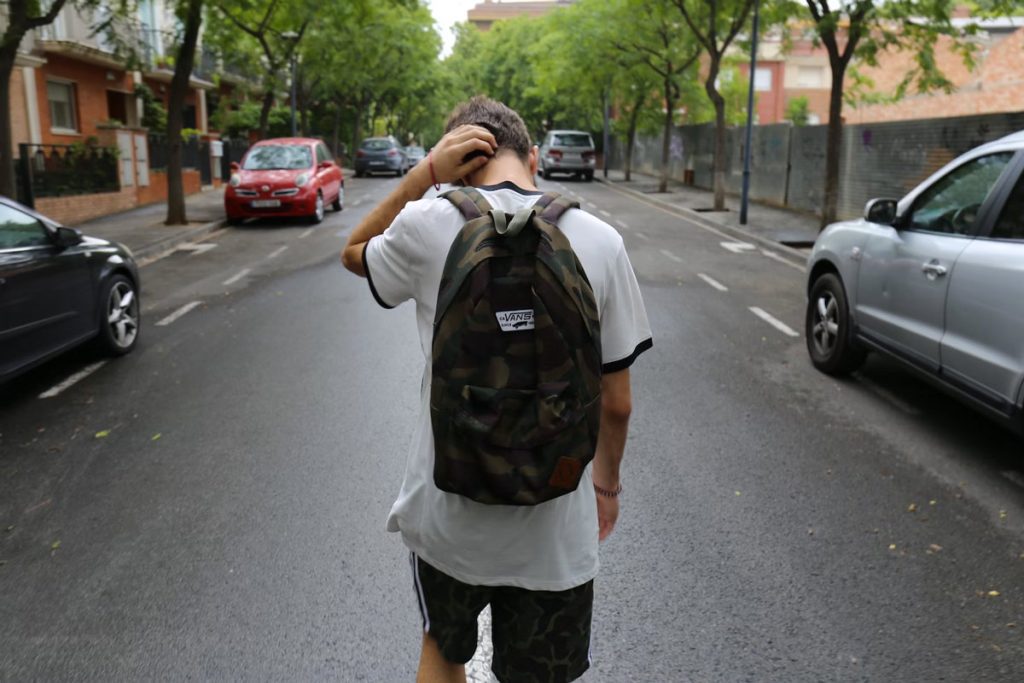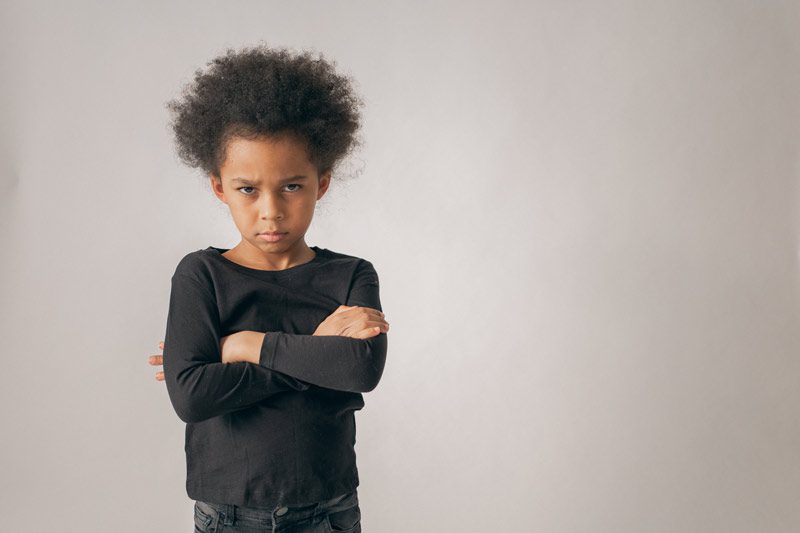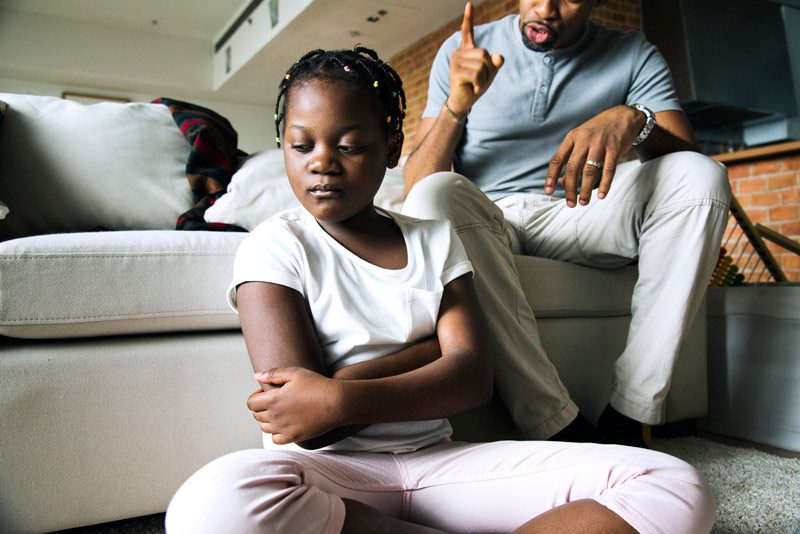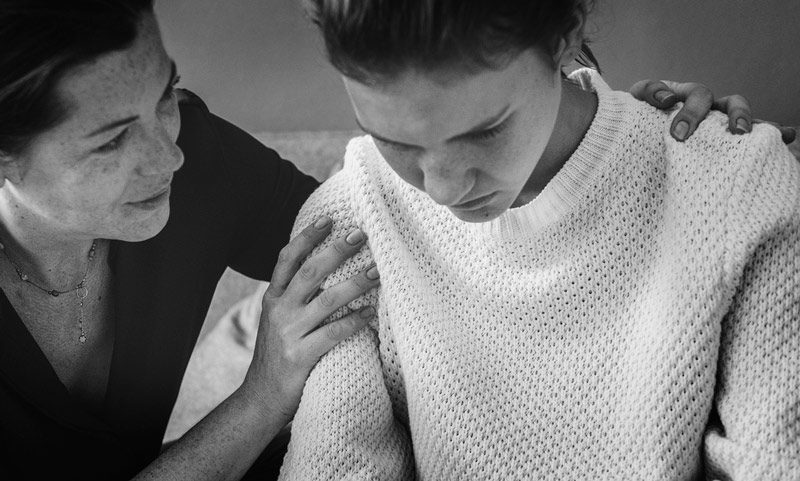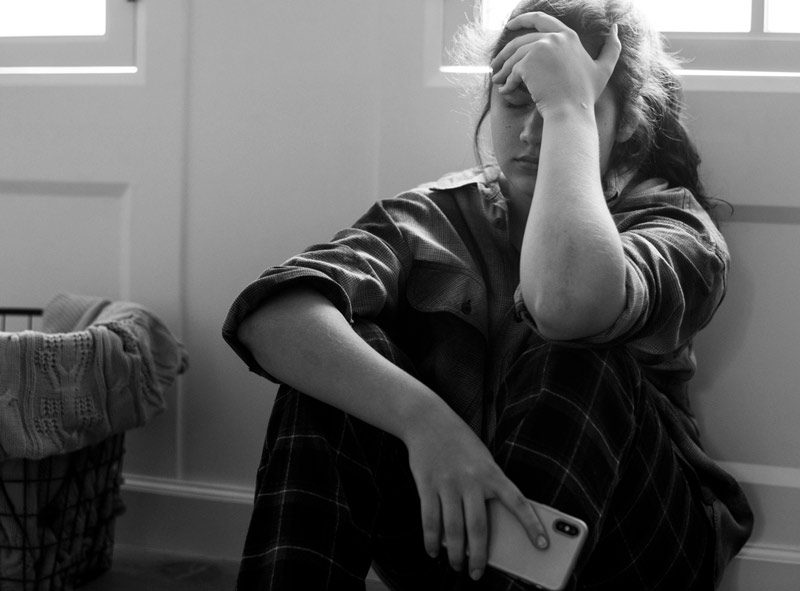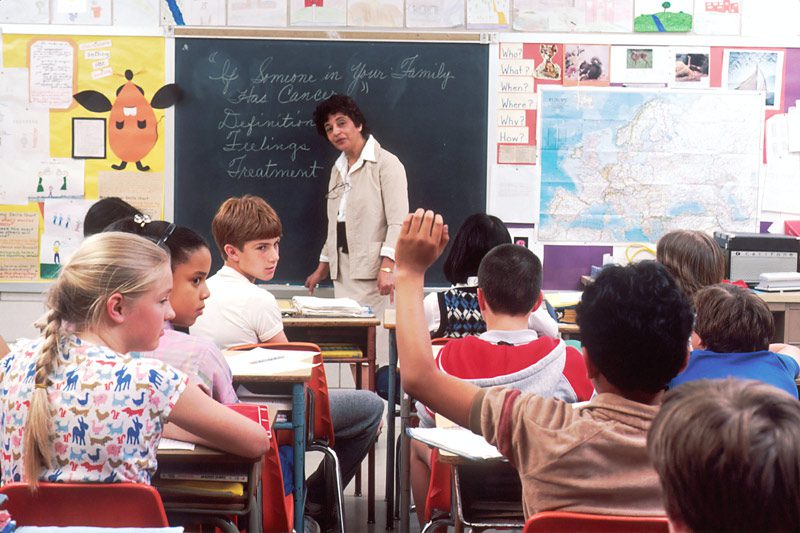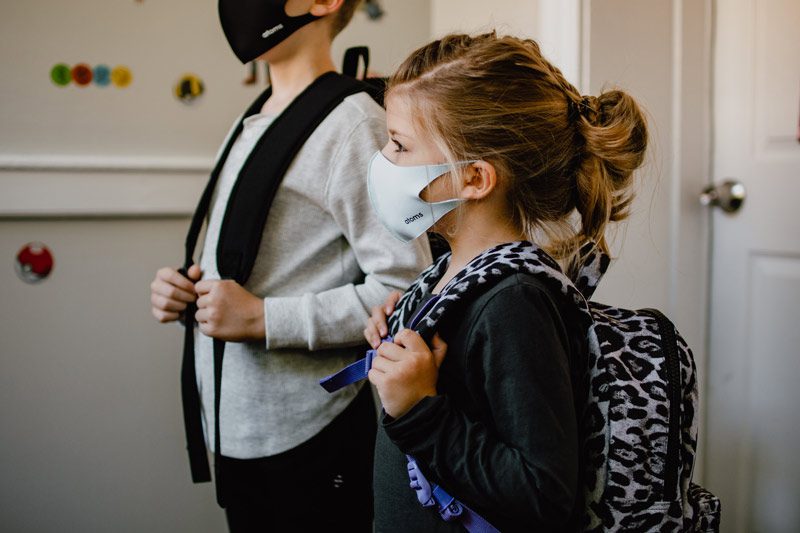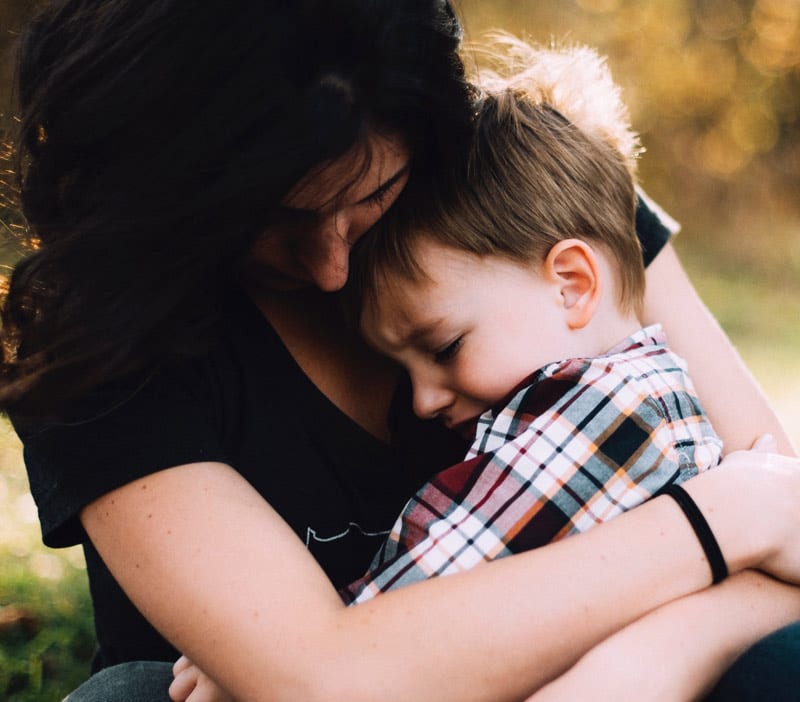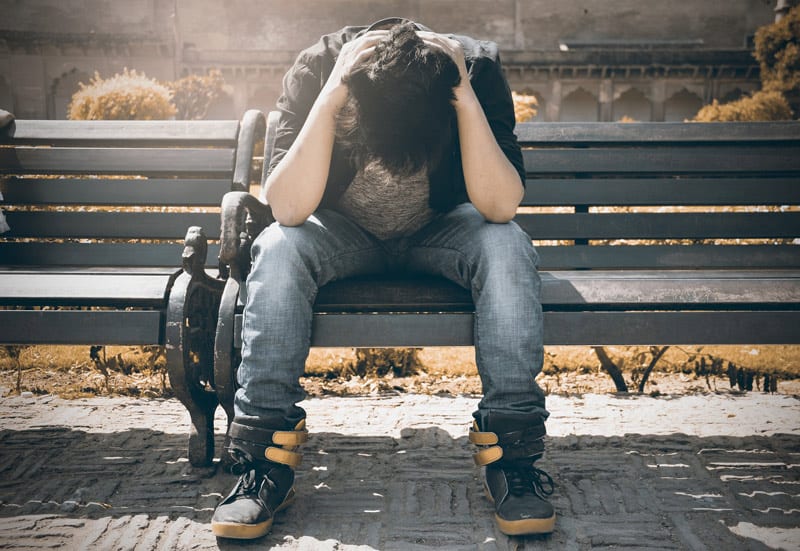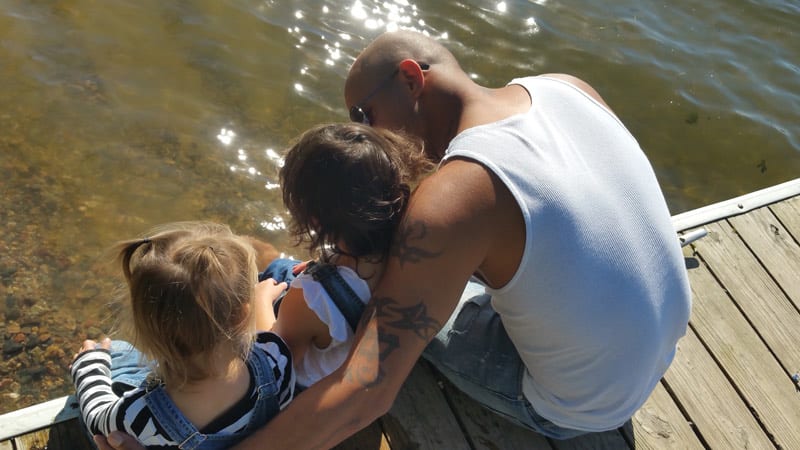Technology addiction has become a growing concern, affecting children, teens, and young adults worldwide. Have you noticed your child or teen spending more and more time on smartphones, social media platforms, or gaming? If it becomes all-consuming, it may impact their well-being and mental health. Internet Addiction in Young People Gen Z is the first […]
Our Latest Blogs
Who would want to be a teen today? As adults, it’s easy to look back on our teen years with rose-tinted nostalgia, but in reality, the physical and emotional effects of puberty combined with hectic social lives and a more demanding school schedule can make teenage years a time of anxiety and stress. As parents, it can […]
As adolescents with chronic mental health conditions approach adulthood, they often face significant changes in their care, including different treatment approaches and potential gaps in services. The shift from the supportive, family-oriented environment of Child and Adolescent Mental Health Services (CAMHS) to the more autonomous framework of Adult Mental Health Services (AMHS) can be disorienting […]
Adolescence marks a pivotal period in an individual’s life, characterized by rapid physical, emotional, and psychological changes. It’s a time of exploration, self-discovery, and growth, but it can also be a period of immense challenges and uncertainty. Teens often grapple with issues such as identity formation, peer pressure, academic stress, family conflicts, and mental health […]
In the intricate dance of parenting, one of the most profound gifts we can offer children is a safe relationship container to validate and hold the experience of their emotions. Yet, in a world often driven by productivity and performance, the importance of this simple act can be overlooked. Providing a secure relationship container is […]
June 26th, 2010. I was running on little to no sleep. Suddenly, I was shaken awake, still a little drunk. I was able to focus on my parents. But there was someone else, an older man. My parents were crying. I may have been in shock, but I was not stupid. I had heard of […]
Adolescence is marked by rapid development, not just physically but emotionally and mentally. As teens navigate this tumultuous period, many are faced with mental health issues that can have lasting impacts. In this crucial phase of life, therapy is essential, serving as a bridge to more robust mental health, resilience, and well-being. Understanding Teen Mental […]
Social media has consumed the lives of millions of children and teens. It has shaped their perceptions, beliefs, and behaviors. According to the Pew Research Center, YouTube is used by 95% of teens in the United States, followed by TikTok (67%), Instagram, and Facebook. As the reach of social media grows, so does the glamorization […]
The complex relationship between family dynamics and mental health recovery is an area filled with both challenges and transformative potential. My personal and professional journey through this landscape has revealed the profound impact of family relationships on psychological well-being and recovery. This investigation, enriched with insights from recent research and systematic reviews, will explore the […]
Adolescence can be a challenging time for many boys as they experience the onset of puberty and must navigate new social situations. Many boys feel confused during this time and need extra support. Parents should be available to answer questions and reassure their teenage sons whether they’re on the right path or need a change […]
The concept of wellness extends far beyond the mere absence of disease. Genuine wellness is a harmonious integration of physical, emotional, and mental health, empowering individuals to lead a fulfilling, active, meaningful life. When it comes to the health and well-being of our children, fostering a holistic wellness approach is essential for laying the best […]
In July 2023, News 18 reported on Aydin Pedone, a 15-year-old teenager from Hudson Falls, who fell prey to bullying. An online video clip of the teen in a Spiderman costume showed that he was subjected to severe bullying, leading to a broken nose. According to the New York Post, Aydin was coerced into coming […]
Raising teens is one of the most challenging tasks of parenting. Your child is undergoing a strange hormone-fuelled metamorphosis, and suddenly, you have a half-adult in your house. While it’s a tough time for parents, it’s just as hard, maybe even harder, for teens. These formative years are critical, and the wrong approach can lead […]
As we usher in the back-to-school season, the hot, unstructured days of summer are giving way to school corridors. This transition can bring eager anticipation of new teachers, classes, and potential friendships. It can also bring nervousness and sometimes worry for children and parents alike. Transitions of this sort can feel scary because they take […]
Today, we’re diving into a topic close to many hearts: the roles of loved ones in depression support. It’s a journey filled with empathy, understanding, and a whole lot of love. Understanding Depression: It’s More than Just Sadness Depression is like a stubborn fog that refuses to lift, making the world dull and lifeless. It’s […]
Pregnancy is one of the most life-changing events a woman can experience. A number of physiological and psychological changes occur as the body prepares to nurture and grow new life. However, people often hype the first-time pregnancy experience, while the second and subsequent ones are seen as less important. The second pregnancy is treated more […]
When a child has mental health issues, getting the right treatment and care for that child is critical. Unfortunately, many children are misdiagnosed with the wrong mental health disorder, which ultimately means they may not receive adequate treatment. Find out why mental health misdiagnoses happen so often in children, what conditions are most commonly misdiagnosed, […]
In April 2023, Bloomberg reported deeply disturbing news involving Chase Nasca, who died by suicide at age 16. In the days before his death, his TikTok feed was full of videos glorifying suicide. To the horror of Chase’s parents, the social media app was still pushing suicide-obsessed content to his feed more than a year […]
Does your child repeatedly ask to stay home from school when feeling anxious or afraid? Do anxiety and worry cause your child to skip classes or avoid doing homework? School refusal is a growing problem in the US, affecting up to 5% of children. What is school refusal? According to the Anxiety and Depression Association of […]
When elderly parents lose the ability to care for themselves, it can be chaotic and demanding. You’re scrambling to figure out what they need and how to get it for them. You may spend enormous portions of the day helping them complete basic human functions. You think about money. How much it costs for medications, […]
Growing up can be challenging for many teenagers. As they transition into adulthood and develop their identity, they’re experiencing many different emotions and changes in behavior. If they’re not adequately supported, these feelings and changes in habits could affect their mental health. As a parent, you must recognize when teens struggle with their mental health, […]
Building Resilience in Children: Strategies for Helping Them Cope with Difficult Emotions Helping children understand and manage their emotions is challenging but provides them with a better and healthier life. It is particularly critical as they mature because their lives will only get more complex and their emotions more demanding. Helping your children develop problem-solving […]
Adolescents and young adults are experiencing the highest rate of anxiety and depression ever reported in the US. According to a report from the COVID States Project, “…nearly half (49%) of respondents reported symptoms of depression, with 26% reporting moderate symptoms or worse, the level at which follow-up care would typically be recommended in a clinical […]
Finding an identity is an essential part of growing up. It’s something all adolescents and young adults go through as they become more and more aware of themselves and their place in the world. Also, the experience of finding identity can shape how well-adjusted teens become as they move into adulthood. If the process isn’t […]
Depression is difficult for anyone, but perhaps even more so for children who lack the ability to seek solutions for themselves. As a parent, it is your difficult but crucial responsibility to help see them through. Everybody’s experience with depression is unique to them. There are many factors that can cause clinical depression in kids […]
Last spring, there were two suicides in the high-achieving Connecticut town where I live. They were separate tragedies, one involving a twelfth grader, the other a tenth grader. It rocked us all, especially the classmates of these young people. We need not know what drove them to their last desperate act. It is not our […]
As a parent, nothing is more exciting than having your children thrive in life. Parenting is not easy; it takes time, patience, and know-how. One of the things most parents desire is to have their children listen to them. For parents and kids alike, there can be challenges related to listening to each other. However, […]
Technology is a double-edged sword for parents. The internet and smart devices can be great learning tools. Yet, online bullying and the presence of various online predators make these tools potentially dangerous and damaging to young minds. What we know: There are links between excessive internet and social media use and lower self-esteem in children. […]
You’ve overheard your teenage daughter saying she wants to lose weight. Maybe she’s spent too much time scrolling through content from influencers on Instagram. Or perhaps a comment you made about another person’s body stuck with her. In today’s world, teens are inundated with messages about how they should look online. Yet, their perception of […]
Although giving birth is usually a joyous occasion, pregnancy, delivery, and aftercare strain the mother’s body physically and mentally. While you may want to smile and cuddle your little one, cherishing the happy moments, the mind may signal other feelings: triggering sadness, nervousness, and fear. These upsetting emotions interfere with your health and are often […]
If you’re the parent of a teenager, there’s a good chance you’ve heard of suicide pacts. Suicide pacts are when two or more people make a plan to kill themselves together. Pacts can be made via text message, social media, or in person. Suicides enacted as part of a pact are more likely to be […]
Watching a loved one struggle with a mental illness can be difficult and heart-wrenching. Many people don’t know what to do and how to best help that loved one during these trying times. Sometimes, good intentions go awry and what we think will help ultimately does more harm than good. Every person is different, each […]
It can be incredibly challenging for parents to determine the best approach to childrearing in certain situations. You may wonder if your way of parenting is too harsh and strict or if you are not enforcing enough boundaries or consequences. Many of these tendencies are encompassed by the four basic parenting styles. This article will […]
Experiences are like bricks that lay the foundation of children’s mental health. If the bricks are weak, they will never sustain the pressure and weight. Thus, the building is at risk of collapsing. Just like that, traumatic childhood experiences destabilize the foundation of children’s mental health, leading to serious problems later in life. How Do […]
Children’s mental health is as important as their physical and emotional wellbeing. Children aren’t always as happy-go-lucky as you may think. They have valid worries, fears, and insecurities that you may need to help them through. Balanced diets, regular exercises, and helping out with their school work will surely improve your kid’s physical health, but […]
Teen Mental Health According to the National Alliance of Mental Health, nearly 20% of teens live with a mental health condition, 11% suffer from mood disorders, and 8% have some kind of anxiety disorder. Teens today face a completely different set of challenges from what their parents faced. The age of social media and online […]
Teens are suffering an increase in anxiety, depression, eating disorders, and suicidal ideation due to the isolation and loss of structure the pandemic created. Rates were high before the pandemic… now, they are higher. The statistics reported by many credible peer-reviewed studies from around the spectrum of the mental health community are staggering. Teens are […]
According to statistics, 20% of adolescents may experience a mental health problem. Additionally, 70% of children and teens get no help with their mental health problems at a sufficiently early age. Mental health issues are becoming more common in children and adolescents in the US. Thus children and adolescents should learn about mental health in […]
Parenthood is not easy, and parents can often find themselves feeling overwhelmed and stressed. Children pick up on the emotional distress their caregivers may be experiencing, and like a sponge, they absorb these emotions. This can cause developmental issues if left unaddressed. Loving relationships with caring, responsible adults are essential to a child’s upbringing and […]
I had a major win last week. My young adult child planned to get up early for her summer job. Watching her make choices the night before gave me that familiar sinking feeling in my gut. Should I say something while she stays up chatting with friends well into the night? Should I step back […]
Social anxiety disorder (SAD) refers to feelings of fear and anxiety that prevent individuals from experiencing everyday social interactions to the fullest. Social anxiety can occur during many stages of a person’s life, but prevalence rates are highest between the ages of 13 and 18. Social anxiety can be difficult to identify for many parents […]
One of the most common challenges I encounter in my private practice is the stigma around mental health. Parents frequently struggle with how best to discuss therapy with their children. Maybe you are worried that your kid will refuse to go to therapy or that she will not engage with the therapist once she is […]
If you have rock-solid family relationships, you can walk through all challenges of life. It is always a joy to come home to a positive, supportive family. Strong family relationships are crucial for proper child development, happiness, and success. What is the greater value of bonds within a family? How can you nurture positive, healthy […]
Shopping for school supplies and new clothes used to get kids excited to go back to school. Now they may dread the idea of sitting in a classroom all day because they’ve adjusted to virtual learning. Ongoing COVID-19 concerns can make returning to school seem scary. No one should walk into school with a cloud […]
My once able-bodied grandfather was diagnosed with Parkinson’s. The decline was sharp and sudden. His bodily functions and memory are gradually failing. But this story isn’t about my grandfather and the cruel reality of those afflicted with Parkinson’s disease. Rather, it’s about the daily stresses my father has to deal with as his primary caregiver. […]
Detection of Anxiety Disorders in a Child All children are afraid of something. If the feeling of fear passes quickly, there is nothing wrong with it. But when it lasts for some time, interfering with all aspects of life, parents need to give close attention to it. Detecting anxiety disorders at an early stage is […]
The moment I found out I was pregnant with my firstborn, I was elated. After seeing the positive sign on the pregnancy test, like many first-time moms, I immediately envisioned the type of child I would have and the kind of parent I was going to be. My expectations were all very positive, and I […]
Attention-deficit/hyperactivity disorder (ADHD) is a mental health condition that causes abnormally high levels of activity and impulsiveness. It is usually diagnosed at around seven years of age. It can also occur in adults, but because symptoms typically appear between ages three and six, parents and medical practitioners tend to catch it early. For many families, […]
There is no way to sugarcoat that parenting a child with a mental health disorder (such as anxiety, OCD, depression, etc.) puts a significant strain on one’s marriage. This can occur for many reasons. First, the mental health issue can be exhausting for parents. Tears, meltdowns, tantrums, and obsessive rituals can become so time-consuming and […]
There are over 43 million unpaid caregivers in the U.S., which means you probably know someone caring for a family member, either within your own family or in your circle of friends. Caring for an elderly or disabled family member is one of the most rewarding parts of many people’s lives, but it can also […]
Family connections are usually our closest relationships in life and have the greatest impact on our well-being. When a family member suffers from the disease of addiction or mental illness – everyone in that family suffers. Our thoughts can quickly become consumed with worry and anxiety due to both the illness and the challenges our […]
On December 18, 2020, I wrote a blog on this website called A Parents Journey. It was about the experience I had helping my daughter manage through her mental illness crisis, which became our family’s crisis. Initially, my wife and I believed that if we found the right therapy for her, they would rehabilitate her, […]
According to the Anxiety and Depression Association of America, one in eight children is diagnosed with an anxiety disorder (Boyle, 2016, p 520). Anxiety affects many aspects of children’s lives. It will appear in their thought processes, causing them to believe they are in constant danger or under a constant threat. Anxiety manifests itself in […]
It might sound like a cliché, but youth really are the future. Unfortunately, it seems that mental health issues are on the rise among children and teens. All over the world, more and more young people are reporting issues with mental health. According to mental health experts Cheree Ashely, Founder of Bright Future Recovery, the […]
If your mornings are fraught with a crying child, panicked screams, clinging arms — this article is for you. Whether it’s your child’s first time in a classroom or this is an annual occurrence, separation anxiety can make every day a challenge. Families struggling with these morning rituals may feel as if there’s no hope, […]
Today’s children and teens experience a great deal of stress and anxiety. From academic pressures to negative self-images, modern-day children take on a lot. Parents must learn how to recognize, understand, and support a stressed child. Parents and caregivers must learn to recognize the telltale signs of stress and anxiety. They should keep in mind […]
At 3 am on January 18, 2018, a cold winter’s night when most everyone was fast asleep, my wife and I were wide awake. Our then 17-year-old daughter, Audrey, was about to be abruptly woken up and transported by a third party to a wilderness therapy program. She had no idea this was about to […]
For many, Christmas is a time for celebration, eating, drinking, and spending the festive period with loved ones. From a child’s perspective, nothing compares to the joy that comes from the season. The magic, fun, and presents all add to the experience. The nostalgia we feel as adults is all constructed from our formative years. […]
Life is an interesting experience that comes with many challenges but also with wonderful, magical moments. Being a parent captures perfectly how beautiful and challenging life can be. Only when you become a mother or father will you truly know what genuine joy and responsibility are. Parenthood is difficult because there’s no manual or guide […]
Parenting has always been a challenge, but times have changed, and although we have more technological tools than we could ever have dreamed of, it seems as though raising teens has become even harder. In recent years, the number of teens diagnosed with bipolar disorder has increased dramatically. Previously, it was rare for young people […]
When someone suffers from a serious mental health disorder, family caregivers are also affected. It’s difficult to witness a loved one struggling with mental illness. Family caregivers go through a range of powerful, often unpleasant emotions. The stressful experience of looking after someone with extreme mental health problems may trigger emotional and behavioral distress in […]
Anxiety disorders, according to large studies, are by far the most prevalent psychiatric disorder in children in the United States. Parenting an anxious child, particularly if you are also an anxious parent, can be incredibly heart-wrenching. As a parent, you instinctually want to protect your children from harm and hardship. You baby-proof your home, purchase […]
Everyone experiences anxiety – it’s a natural response to certain stressors. Anxiety disorders, on the other hand, are characterized by frequent, intense, excessive anxiety. It’s important to note that it’s not uncommon to see signs of anxiety in children regardless of whether or not they have an anxiety disorder. Because children (especially young children) don’t […]
Given that teens with obsessive-compulsive disorder (OCD) and anxiety disorders crave control, repetitive daily routines, and certainty, COVID-19 and the disruptions caused by stay-at-home orders and school closings present some serious challenges. As a person with OCD myself, I can say I have had to adapt and put into place strategies that are specific to […]
As you move through each trimester of your pregnancy, you and your doctor will focus on many aspects of your physical health. You’ll monitor your blood pressure, heart rate, and weight to make sure you’re progressing without any medical problems. You’ll also keep an eye on any chronic conditions, such as diabetes or heart issues […]
I have a major mental illness and I’m a parent. These two things do not have to be incompatible with each other. According to the stigmatizing stereotypes, I should be destitute and unable to maintain relationships. In reality, I’m married and have a daughter, 11, and son, 10. I have a great relationship with all […]
Part One (of a two part series) – Inside the Illness When someone has a serious psychiatric illness, one of the most difficult aspects of the condition is that most sufferers cannot see the true extent of their symptoms. Some cannot see that they have symptoms at all, and instead project blame for their distress […]
As a therapist, one of the most common issues that parents and family members ask me about their loved one is “how can we make him/her come to therapy?” I would like to share some thoughts and ideas about this. The short answer is, “You can’t!” Every adult has the right to consent to treatment, […]
One of the fears we have as parents is that by exposing our children to the reality of our brokenness (our fears, our shortcomings, and yes, even our mental illness), we’ll be unnecessarily burdening them. Nothing could be further from the truth. The following are four reasons why I’ve refused to let mental illness be […]
As per a recent report published by Mental Health First Aid, mental health issues affect about 47 per cent of the adult population, 13 percent of children and 46 percent of teenagers each year. But unfortunately, only half of the affected people receive appropriate treatment, often due to the stigma attached to it. Researchers are […]
- 1
- 2










